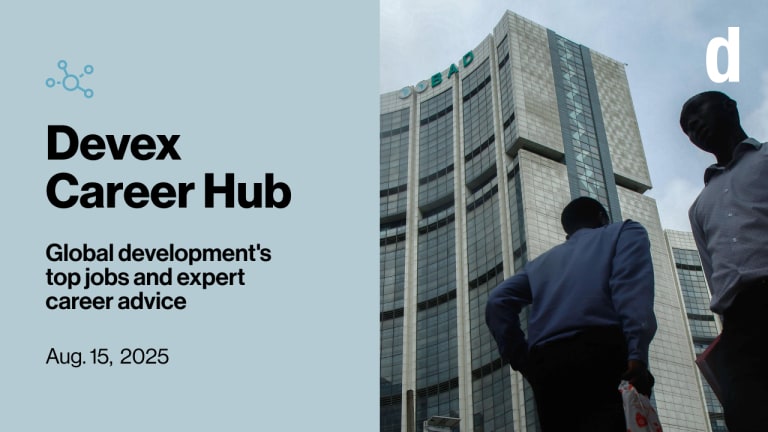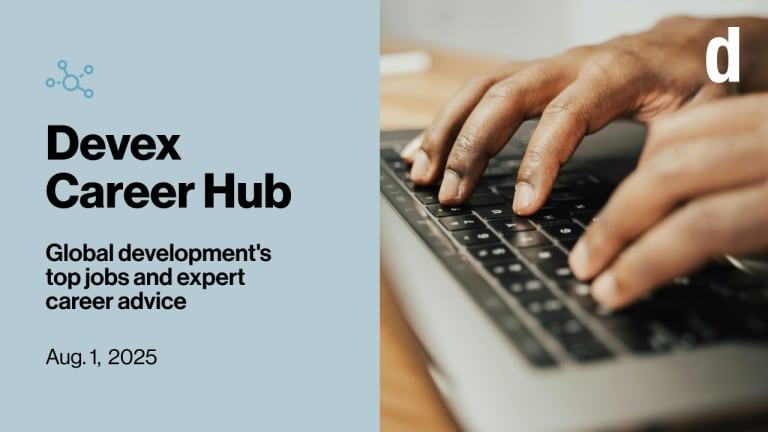This month’s Ask Devex event is focused on careers in global health and monitoring and evaluation. As part of our Skills for Tomorrow initiative, in partnership with Harvard Kennedy School and the University of Southern California, among others, USC’s Shubha Kumar and IDinsight’s Ben Brockman joined Devex to share their professional insight.
More on Skills for Tomorrow:
► Top emerging skills in development
Kumar is an assistant professor at USC and director of the school’s online master's in public health program, while Brockman is a senior manager at IDinsight. The pair discussed the value of advanced degrees, the importance of soft skills, and the best ways to learn the most in-demand skills.
Here are three key takeaways from the event:
Advanced degrees are valued by employers
While it does depend on previous work experience and other qualifications, a master’s degree can help you progress in your career, explained Kumar. It is critical to get a degree in hard skills rather than more general areas, she stressed, especially at postgraduate level.
Depending on the type of work that interests you, pursue a degree that provides you with the skill sets you will need rather than just a foundational knowledge, Kumar continued. This will also help when it comes to applying for jobs — context-specific knowledge can be learned on the job, but hard skills will help you stand out.
Brockman agreed that professionals should focus on building hard skills, but can approach this in different ways depending on whether they want to focus on the technical or the general with some technical expertise.
Learn skills for working with data
Brockman explained that skills for working with big data is valuable, as is familiarity with machine learning, artificial intelligence, advanced programming for prediction, and data management.
Being able to manage large volumes of data and do something with it, such as build predictions and softwares, are key skill sets, he continued.
For those looking to develop skills in this area, Brockman advised learning SQL for database management, and looking at different programing languages such as Python or R. The two best ways to acquire these skills are through online courses such as those offered by Coursera, he added.
Finally, to really understand these programs and apply these skills, you have to practice working with data sets and solving problems, Brockman said. He advised finding pro bono volunteer work or participating in competitions, such as those hosted on Kaggle, which will allow you to test your data skills.
Strong communication skills are critical
Reflecting on her own experience, Kumar said that people skills are most important. Whether it’s talking to people as part of your monitoring and evaluation work or presenting those results, strong communication skills are key, she added.
Brockman agreed that professionals with technical skills have to able to take technical jargon and concepts, and simplify them for nontechnical audiences. Professionals will often find themselves working with government representatives or staff from nonprofits who might have some knowledge of M&E but are not experts in this area, he explained.
“Being able to distill complex research topics and the trade-offs, and uncertainties that underlie the research is, I think, a really important skill for people doing M&E,” Brockman said. “But that does rely on having a technical underpinning to begin with,” he added.








